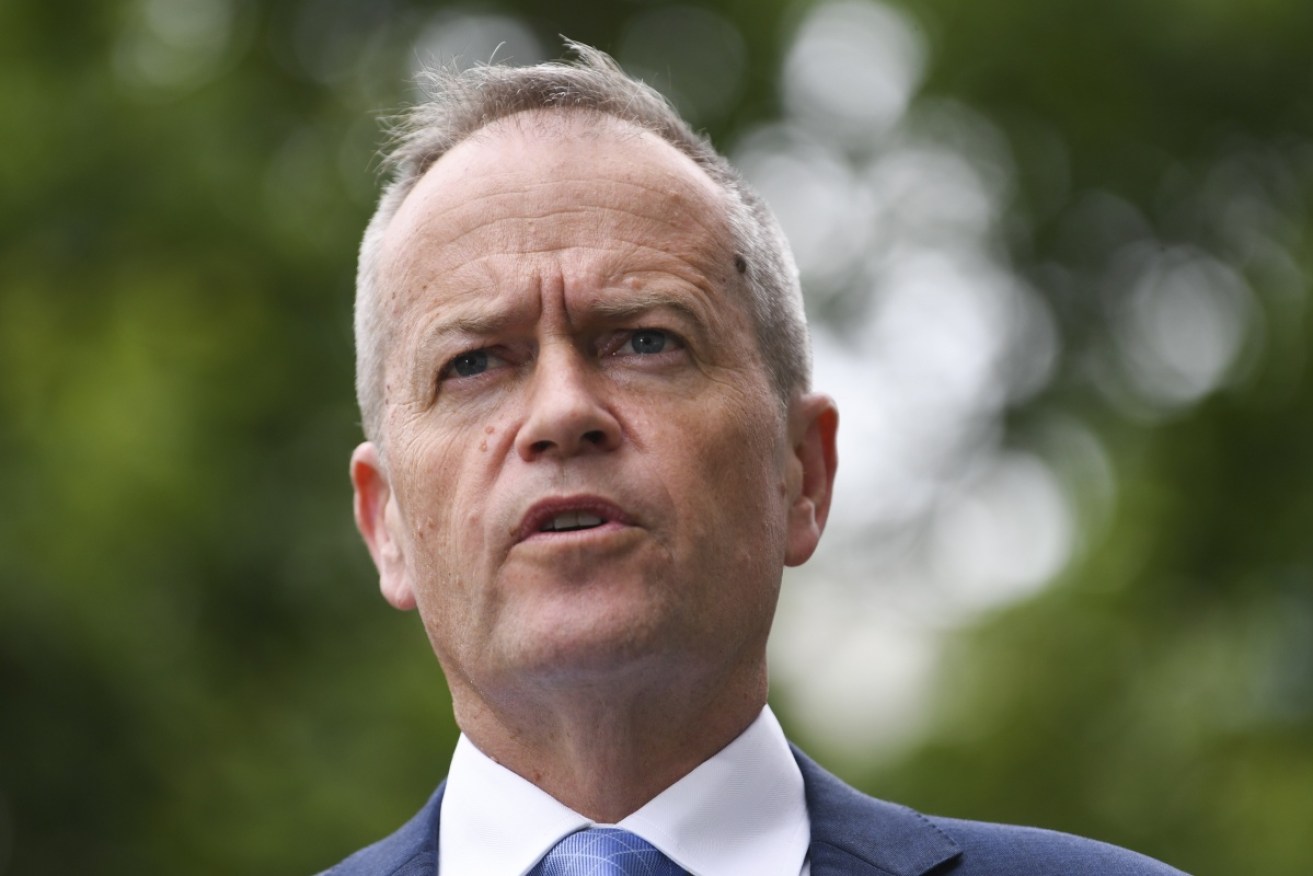‘A jenga puzzle’: Labor bows to pressure on tax concessions for pensioners


Bill Shorten says the company tax cut is a 'reverse donation' to the banks. Photo: Getty
Bill Shorten has bowed to political and community pressure over Labor’s contentious franking credits reforms, announcing he will allow pensioners to keep claiming the cash refunds he said were distorting the tax system.
After a two-week scare campaign from the Turnbull government, which has accused Labor of pursuing a “retiree tax”, the opposition will confirm on Tuesday it will exempt pensioners from the policy.
The carve-out will blunt the government’s attack that Labor is “robbing pensioners and retirees”, but the Coalition can be expected to accuse the opposition of an embarrassing backdown while continuing to highlight the impact of the policy on other retirees.
Labor is likely to argue it has listened to the community concerns about its policy, and that the modified reforms allow the opposition to keep true to its initial intention – to target tax loopholes that benefit wealthy Australians.
The decision shrinks Labor’s election war chest by $3.3 billion over the decade, with the modified policy reaping $55.7 billion over 10 years, rather than the original figure of $59 billion.
Under the new proposal, any person who owns shares and receives a government pension or allowance could continue to claim cash refunds from franked dividends.
Labor would also exempt self-managed super funds where at least one person is a pensioner before Wednesday, March 28.
The opposition said its initial plan was expected to impact 14,000 full-rate age pensioners and 200,000 part-rate pensioners while the government claimed 237,952 pensioners would be affected.
The current system of giving cash refunds from franked dividends to shareholders with a low taxable income currently costs the budget $6 billion a year.
Amid reports on Monday that Labor was preparing to exclude pensioners from the policy, Treasurer Scott Morrison said any change to the policy would be an “admission that they’ve stuffed it up”.
“This policy is a jenga puzzle, and yet they are just pulling out the bits of wood,” Mr Morrison told Sky News.
Prime Minister Malcolm Turnbull said the mooted backdown was “policy on the run”.
Some Labor MPs also appeared caught off guard by the change, which was still yet to be approved by shadow cabinet on Monday afternoon.
Backbench Labor MP Wayne Swan, a former treasurer, said he believed the package was “balanced”, describing it “right” on politics and policy.
Announcing the policy two weeks ago, Labor pitched the move as an attempt to wind back unsustainable tax concessions introduced by the Howard government and favoured by wealthy older Australians.
In a speech, Mr Shorten said “the Howard-Costello subsidy entirely distorts the original design of the dividend imputation system”, which Paul Keating introduced as treasurer.
The opposition began to hint at a possible change as it faced an apparent backlash from some pensioners during the Batman byelection, which it won comfortably against the Greens.
Election returns suggested Labor had performed better in pre-poll votes, before the policy was announced.
Discussing Labor’s original policy, economist Saul Eslake had argued those who would lose a modest income stream if the cash refunds scrapped could have recouped the money because they could be eligible for a larger part pension.
The Grattan Institute claimed last week many people who received a part-pension were “relatively wealthy” as a result of the pension assets test, which exempts the family home.
“Half of all pension payments go to those with assets of more than $500,000,” researchers Brendan Coates and Danielle Wood wrote in Inside Story.
“Almost 20 per cent of payments go to those with assets of more than $1 million. They’re clearly much better off than the bottom 40 per cent of retirees, who draw a full age pension.”
Despite the controversial tax policy, Labor held a comfortable 53-47 per cent lead in the latest Newspoll on Monday, a result that included an increase in its primary vote.








